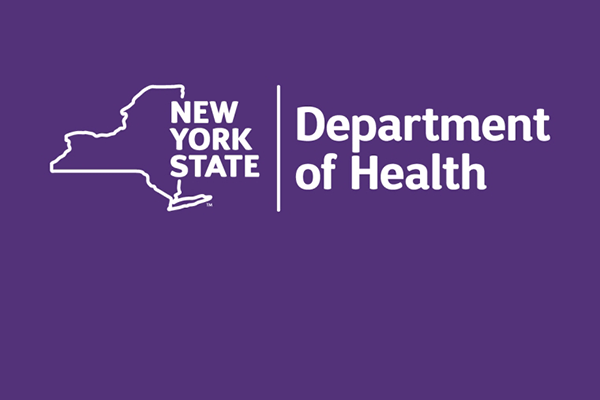|
RCBJ-Audible (Listen For Free)
|
Deadline Approaching For New York State DOH To Select Single Vendor To Replace Over 600 Fiscal Intermediaries In Consumer Directed Personal Assistance Program
By Andy Milone
A lawsuit filed last week in the United States District Court for the Southern District of New York by four companies hoping to stave off their ouster from the CDPAP states that if changes to the program are allowed to proceed the 600 “fiscal intermediaries” serving 280,000 New Yorkers in need of medical care will cease to exist.
The CDPAP (Consumer Directed Personal Assistance Program), funded through Medicaid, allows eligible participants to choose their own caregivers, including family members who may not have training or certifications. The fiscal intermediaries are the mechanism for how caregivers get paid for their work.
The lawsuit claims Governor Hochul’s plan to replace 600 intermediates with a single state-chosen intermediary is unconstitutional. Plaintiffs say that the new law, passed as part of this year’s budget, interferes with their contractual rights, takes their property without compensation, and denies them Due Process and Equal Protection guaranteed by the Fourteenth Amendment.
Attorneys for the plaintiffs say the “action challenges the constitutionality of New York State legislation that, if implemented, will destroy an entire industry and hand all of its economic value to a State imposed and State-sanctioned private-company monopolist, disrupting services to hundreds of thousands of disabled and chronically ill individuals in the process. This is not hyperbole or conjecture; rather, the statute at issue on its face expressly requires all 600 existing companies that provide ‘Fiscal Intermediary’ services under New York State’s Consumer Directed Personal Assistance Program (CDPAP)—a popular government program that provides New Yorkers who require home healthcare with the freedom to choose who will provide them with such care—to cease providing services by April 1, 2025.”
The lawsuit is not the only effort by fiscal intermediaries to halt changes to the CDPAP that would eliminate thousands of jobs statewide and devastate those entities that have built their business models around the CDPAP.
Carlos Martinez, Executive Director of the Rockland Independent Living Center, known as BRIDGES, is applauding newly proposed state legislation that, if passed, would largely protect his agency’s future participation in the home health care program from the changes contained in this year’s budget.
Martinez calls Senate Bill S9901, drafted earlier this month by Sen. Gustavo Rivera (D-33), “a good starting point to correct the wrongs against organizations like ours.” He says it “absolutely” restores the nonprofit’s role as a fiscal intermediary in the Consumer Directed Personal Assistance Program serving the chronically ill or physically disabled.
“The new legislation essentially allows us good actors to remain in business,” said Martinez during a telephone interview.
Nonprofits like BRIDGES perform wage and benefit processing for personal assistants providing home health services, and ensure they get paid for their work. These agencies say the closeup and local approach has greatly benefitted their clients.
BRIDGES’ status is uncertain after amendments to the CDPAP supported by Gov. Kathy Hochul were included in the state’s fiscal year 2024-25 budget bill. The amendments eliminate individual fiscal intermediaries in favor of a single larger entity by April 1, 2025, essentially replacing organizations like BRIDGES. The impetus for the change to a single sponsor was largely two-fold: cost savings, and elimination of fraud.
BRIDGES has about 650 employees, and a $23 million operating budget, of which more than 90% is dedicated to serving nearly 400 consumers through CDPAP. Martinez worries that changes will lead to massive layoffs and having to possibly downsize from its offices at the Palisades Center.
Hochul has referred to the “critical health care priority” in the budget as Medicaid savings through improved oversight and efficiency. But it’s come under fire in the months since adopting what critics have referred to as reform brought about at the eleventh hour.
Under the Rivera bill, a licensure process and additional requirements would be established for fiscal intermediaries to enable them to continue in operation, rejecting the scheme of a single entity providing those services for the entire state.
Rivera’s bill proposes a repeal of all language associated with the transition to a single fiscal intermediary under the CDPAP program and would impose extensive reporting by approved fiscal intermediaries. It requires licensure of intermediaries as or April 1, 2026 and directs that the Commissioner of Health make regulations and issue guidance to ensure an orderly transition of consumers and personal care assistants from FIs that are ceasing operations.
The bill would prohibit fiscal intermediaries from advertising their services to Medicaid enrollees and allows for corrective action for violations, including suspension and revocation of licenses.
BRIDGES and the other organizations would be required to pay a one-time $10,000 fee.
“This bill represents a compromise of positions by balancing program integrity, access to services, consistency in fiscal intermediary operations, and economic opportunity,” said Rivera, chair of the Senate Health Committee, in a press release.
“By establishing a uniform licensing process for fiscal intermediaries, they can demonstrate their character and competence, as well as their compliance with applicable state and federal laws and regulations to continue operating in this innovative and popular program.”
Martinez says the governor is attacking the “so called the middlemen” like BRIDGES – a phrase he condemns — when “we have nothing to do with who gets approved to the program.”
Oct. 1 is the deadline for the New York State Department of Health to select a vendor to replace the over 600 entities that are currently serving as fiscal intermediaries in the Consumer Directed Personal Assistance Program.













